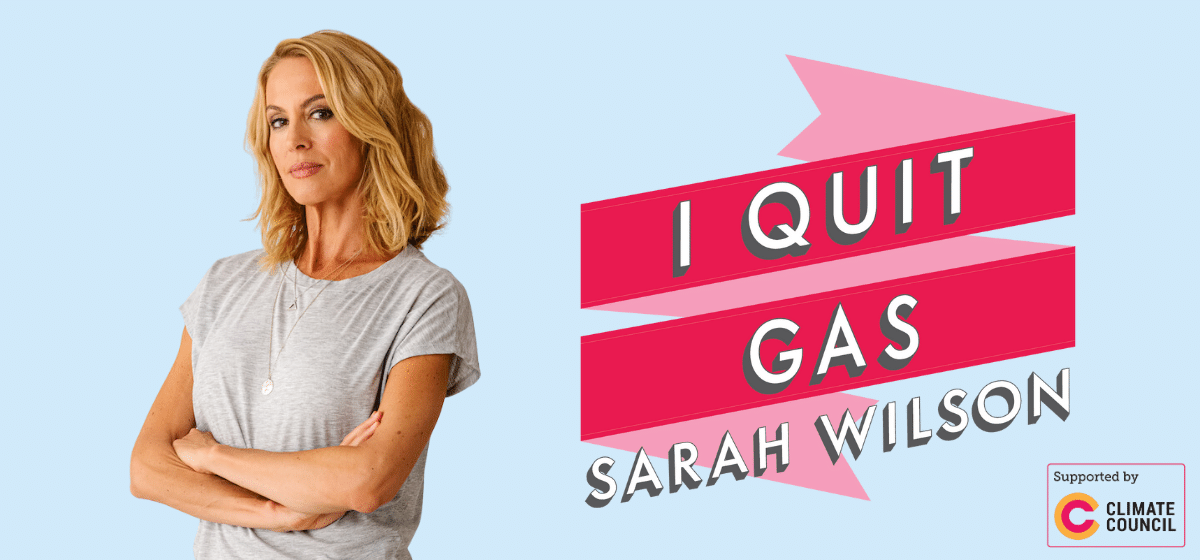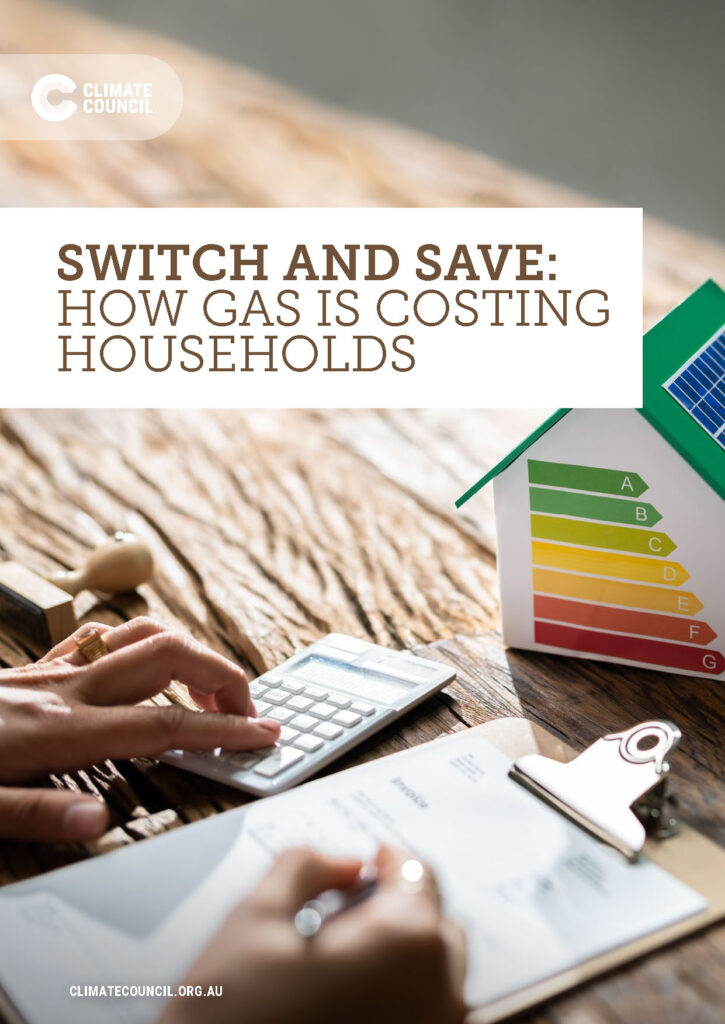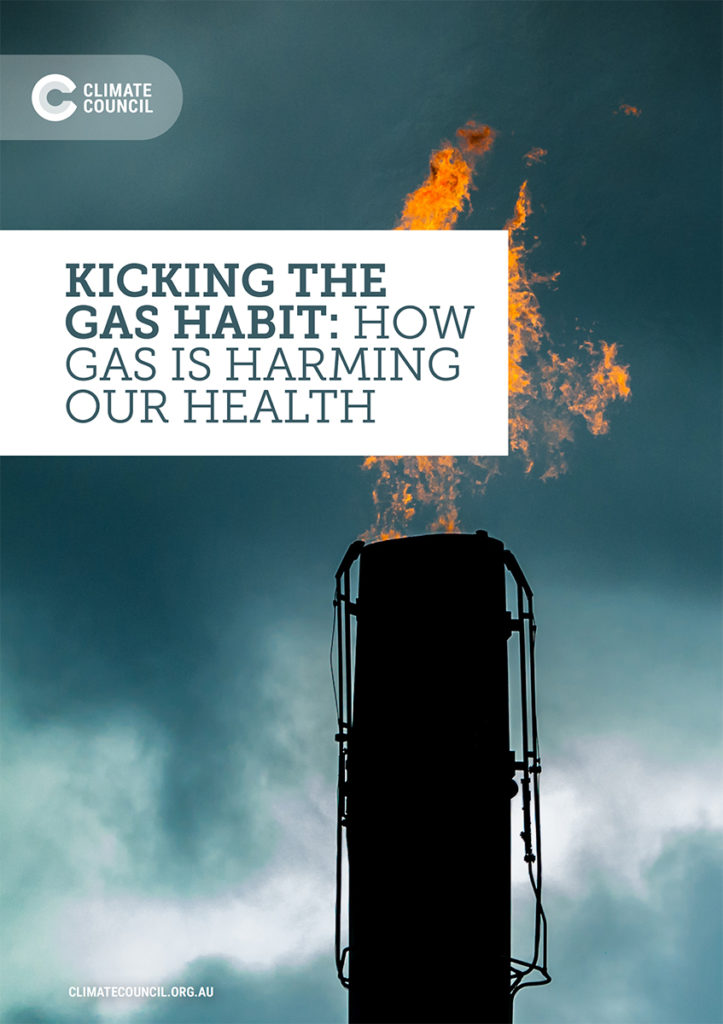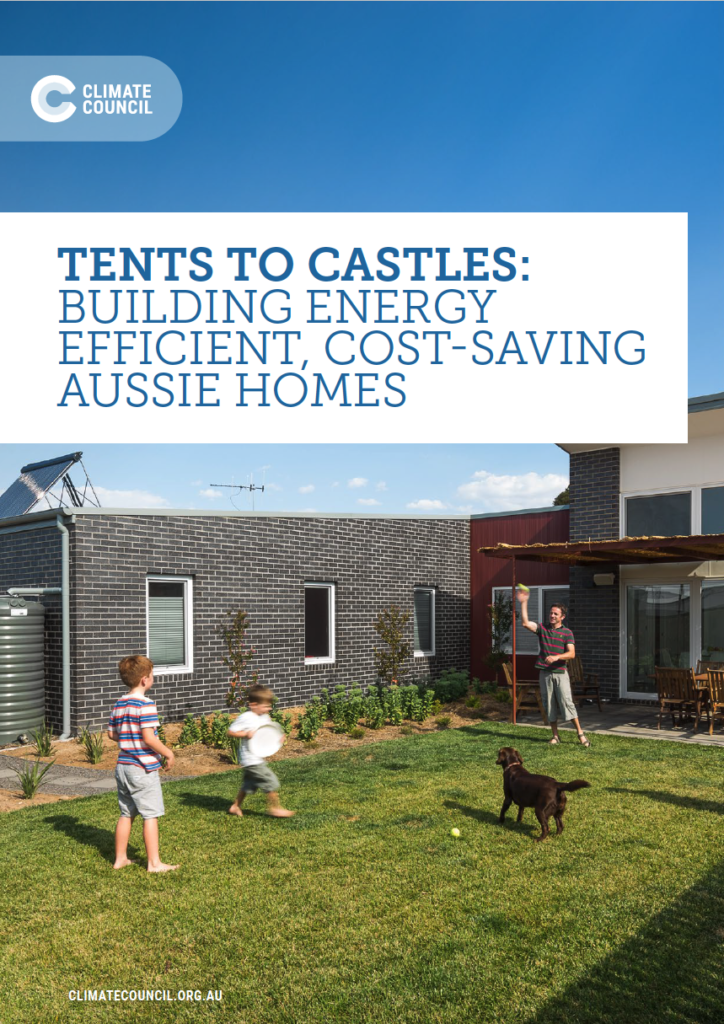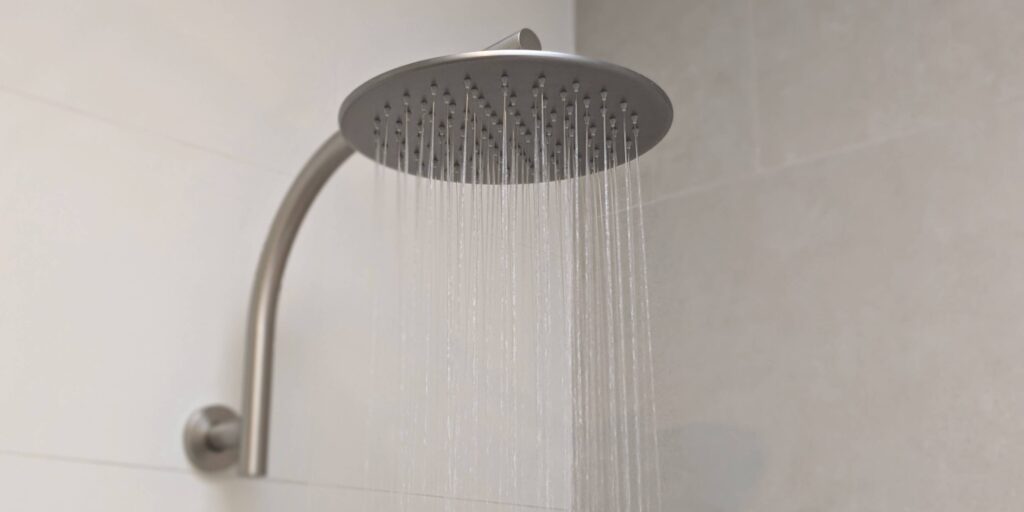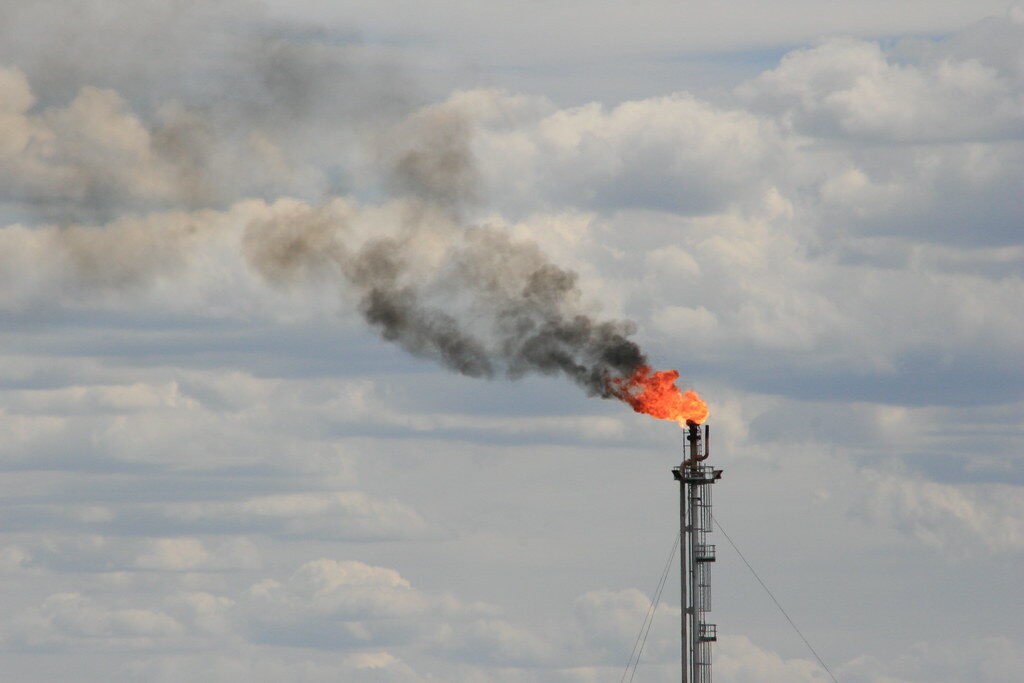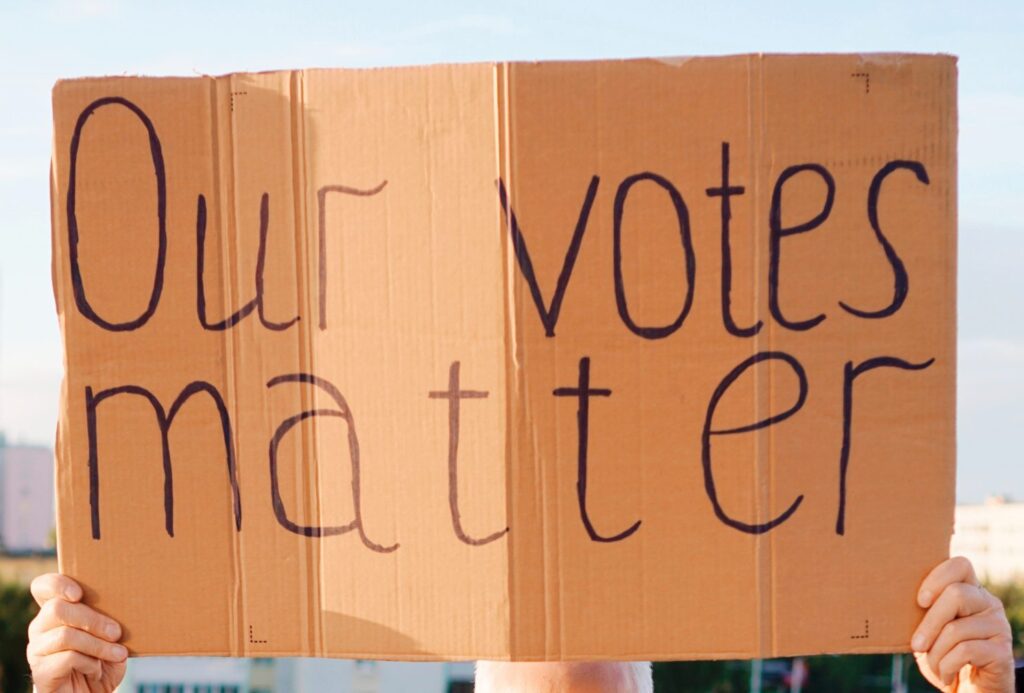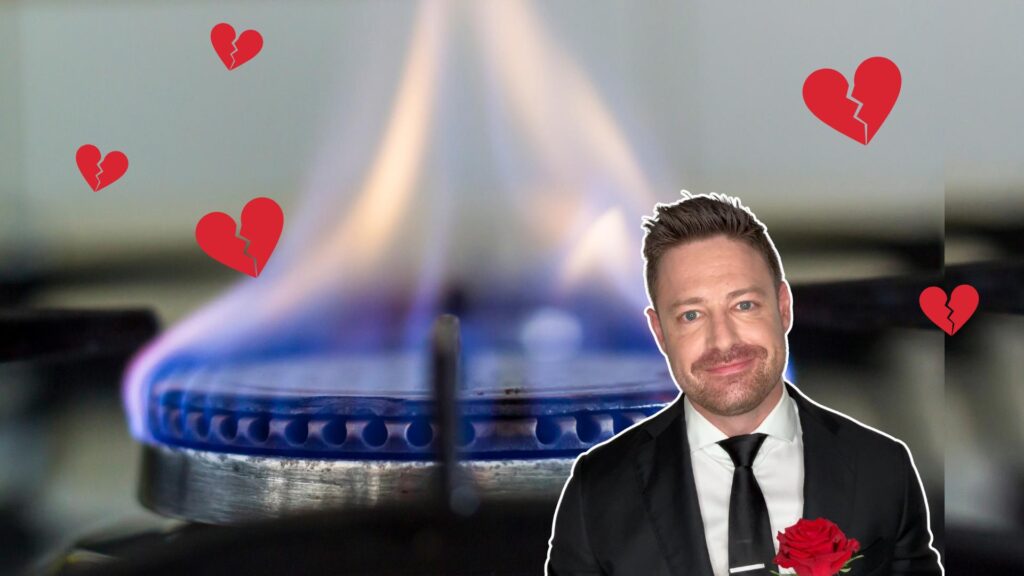The gas we use to cook and heat our homes is a dirty, polluting fossil fuel that’s dangerously unsafe for our health, and the health of our planet.
Together, we need to show politicians and the fossil fuel industry that Australians are ready to get gas out of our homes – for good.
Australians are right now facing a cost-of-living crisis. Over the past decade, wholesale gas market prices have more than tripled (1), causing dramatic spikes in our energy bills, while the profits of fossil fuel giants like Woodside soared 500% (2).
Meanwhile, the UN Intergovernmental Panel on Climate Change (IPCC) has issued its final warning, noting that the ‘climate bomb is ticking’ (3), as impacts and extreme weather escalate all over the world.
It’s time to take back control. Collectively, we can all take action by pledging to make gas-free choices, where and when you can. Whether you’re a renter or own your home, can replace all your gas appliances immediately, or will need to do so over time, committing to quit gas for good today can help kickstart the clean energy revolution in your community.
Can you commit to quit gas today by signing the pledge below and adding your name to our open letter?
The benefits of committing to quit gas:
SAVE MONEY: Switching your cooktops, heaters and hot water systems to electric appliances could save you over $1800 a year, putting you back in control of your energy bills (4).
MAKE YOUR HOME SAFER: Studies have shown that gas cooktops leak harmful toxins into your home, even when they are switched off. In fact, a child living with gas cooking in the home faces a comparable risk of asthma to a child living with household cigarette smoke (5). No thanks!
CUT EMISSIONS: Ditching harmful gas appliances from your home, (or if you’re a renter, switching over to a green energy provider) can also cut your household’s emissions by up to 2 tonnes a year (6) – now imagine if that was multiplied across every gas-connected home in Australia!
The evidence is clear: switching from gas to cleaner, energy-efficient alternatives isn’t just good for the planet, it’s good for your health and hip pocket, too.
Let’s say goodbye to the health risks and high costs of gas in our homes.
Check out our quick guide to getting your home off of gas
Find out how much you could save by getting your home off gas:
Learn more about the benefits of living in a gas-free home:
Want more information? Check out the FAQ’s or read some of our handy resources:
FAQs:
What’s causing electricity prices to rise?
There’s no denying that gas prices are on the rise, and many Australians are already feeling the pinch of rising power bills. Essentially, power prices are spiking because of an increase in demand for gas; as well as breakdowns of our ageing and unreliable coal-fired power stations, and the war in Ukraine, which is pushing up prices for all fossil fuels.
To be clear, this surge in prices in Australia is not because of a lack of supply. In fact, Australia is one of the top three exporters of gas worldwide, right up there with Qatar and the United States. Nearly 80% of all gas produced in Australia is devoted to the gas export industry. Unfortunately, this forces Aussies to compete with global export prices, while the gas companies make super profits.
How do household gas appliances contribute to climate change?
Individually, Australian households are not big carbon emitters, but collectively, they make a big contribution to climate change – around 12 percent of Australia’s emissions. This includes the use of dirty, inefficient gas appliances. Like coal, gas is a dangerous, polluting and harmful fossil fuel. It’s mostly made up of methane, and is up to 86 times more polluting than carbon dioxide in the short term. Using gas for energy, including the gas we use in our homes for cooking, heating and hot water, adds greenhouse gas pollution, a key driver of climate change.
Australia’s existing use of gas is inconsistent with limiting global temperature well below 2oC, so we must rapidly reduce our reliance on gas.
Why are my gas appliances bad for my health?
Gas is a polluting fossil fuel that harms our health, wellbeing and, of course, the climate. It’s estimated that burning gas in your home is responsible for up to 12% of the burden of childhood asthma in Australia. In fact, a child living with gas cooking in the home faces a comparable risk of asthma to a child living with household cigarette smoke. Read more in our report: Kicking the Gas Habit: Why Gas is Harmful to our Health, or check out this article from Miki Perkins in the Age: I measured gas pollution in my kitchen and this is what I found (yikes)
How much can I save on my power bill by switching to electric appliances?
Switching out your polluting gas appliances for more efficient electric alternatives can save you up to $1859.75 a year on your power bills. Research found that a 200m2 detached home with solar panels, efficient appliances and no gas connections paid an average of $576.90 a year, in comparison to a gas-connected house with no solar and less energy efficiency appliances, which paid an average of $2436.65.
I want to switch my home off gas, how do I get started?
Great! Take the pledge to let us know, then check out our quick guide to getting your home off gas!
I rent a home with gas appliances. What can I do?
Not everyone owns their own home or has control over whether it’s connected to gas. For example, if you live in an apartment building. But you can still take action! If you rent, consider pledging to switch over to a green energy provider that sources most or all of its power from renewables like wind and solar. Check out the Greenpeace Green Electricity Guide for tips on choosing the cleanest energy for your home.
If you have a gas stove, there are cheap, clean and efficient induction cooktops available, including portable options from you can purchase from IKEA, Bunnings and Woolworths (prices range from $60-$80 for a single pot cook-top). There are also many ways to improve the energy efficiency of your home, like choosing efficient heating and cooling appliances. Saving energy by taking simple actions like closing doors to rooms not in use is another way to reduce the amount of gas you need to burn. Many homes have both gas heaters and reverse cycle air conditioners installed, so shifting off gas can be as simple as using your super efficient air conditioner’s heating function. Find out more about what you can do here.
I can’t afford to buy new appliances, but still want to take action against gas. How?
The upfront cost of new appliances can be a barrier, especially as Australians are experiencing a rising cost of living. By making the commitment to quit gas, you’ll have the option to commit to replacing your gas appliances with electric options as they break down, or over time, so that choosing to go gas-free is more affordable. Remember, the onus should be on governments to help households make the switch, and there’ll be more to come from the Climate Council on how we can urge governments to provide rebates and incentives for everyone wanting to move towards clean, energy-efficient electric alternatives.
I already live in a gas-free home. Can I still take the pledge?
Absolutely! We want to paint a picture of how many Australians are ready to go gas-free, including the number of Australian households that already live in clean, energy efficient homes. If that’s you, take the pledge and select ‘I already live in a gas-free home’ so we can count your incredible efforts to this collective push.
Reports:
Media:
I measured gas pollution in my kitchen and this is what I found (yikes)
Health impacts from gas stoves in Australian kitchens under microscope in new study – ABC News
Converting from gas to an electric induction stove? Here are some tips and tricks – ABC News
How getting rid of gas and electrifying everything in your home can save you money – SBS News






References:
- 1,4,6: Switch And Save: How Gas Is Costing Households, Climate Council report
- 2: Woodside Energy pays big dividend as profits surge, Australian Financial Review
- 3: IPCC climate scientists issue ‘a survival guide for humanity’, warning window closing to reduce emissions, ABC News
- 5: Kicking the Gas Habit: How Gas is Harming our Health, Climate Council report

